Update: D.C. police chief remains in control, but new Bondi order "directs" immigration enforcement support
The new order from A.G. Bondi followed a Friday hearing in response to D.C.'s lawsuit.
A Thursday night order from U.S. Attorney General Pam Bondi caused the Washington, D.C. officials — who have responded cautiously to the Trump administration’s efforts to exert more control over D.C. — to declare that the administration had gone too far.
[Update, 11:00 a.m.: The D.C. government sued the Trump administration on Friday morning, asserting that the administration was violating the Home Rule Act, the Administrative Procedure Act, and separation of powers. D.C. Attorney General Brian Schwalb is seeking a temporary restraining order to block Bondi from enforcing her order.]
[Update, 11:30 a.m.: The case has been assigned to U.S. District Judge Ana Reyes, a Biden appointee, and she has scheduled a hearing for 2 p.m. Friday to address D.C.’s TRO request.]
[Update, 7:30 pm.: After Friday’s hearing, Bondi issued a second, more narrow order, addressing several of the legal issues raised by Reyes at the hearing.
Most importantly, D.C.’s police chief remains in charge of the force. Reyes suggested, however, that she agreed the federal authority under the Home Rule Act provision Trump invoked on August 11 gives the federal government key powers.
While Reyes believe that Bondi can’t rescind D.C. police policies, the new order directs "assistance" from the Metropolitan Police Department with immigration enforcement "notwithstanding” D.C. sanctuary policies that would ordinarily prohibit that cooperation. Although D.C.’s lawyer challenged even that possibility in court on Friday, Reyes did not think that was likely right under the law — at least in the context of Friday’s temporary restraining order hearing.]
The remainder of the original story follows:
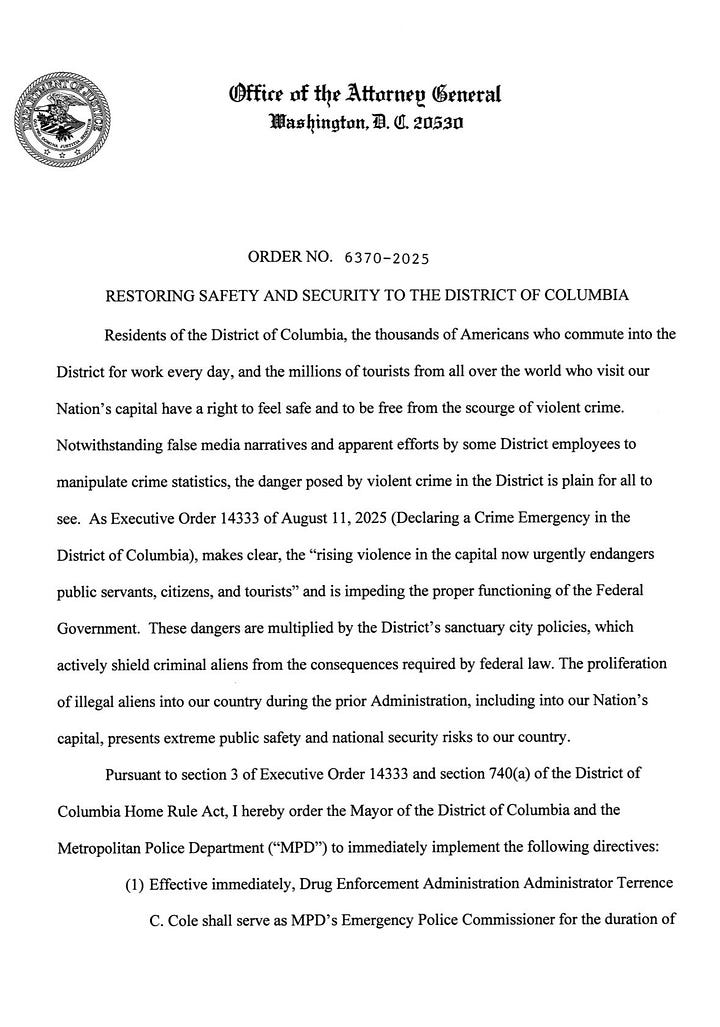
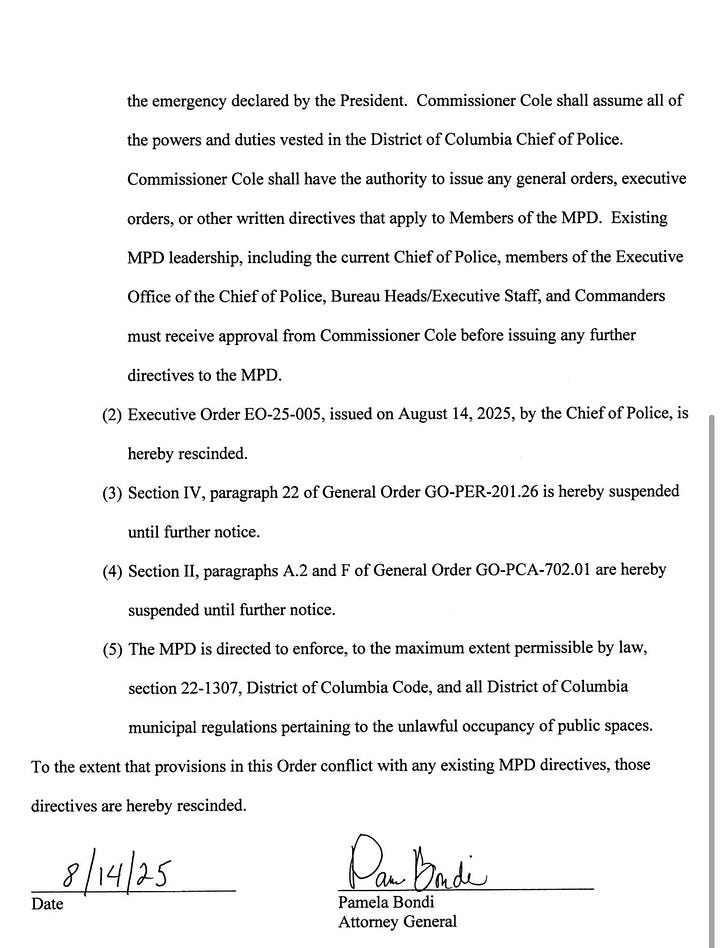
In the Thursday order, Bondi purported to have significant control over the Metropolitan Police Department — D.C.’s police force. Most significantly, she claimed that she had the authority to announce that “Drug Enforcement Administration Administrator Terrence C. Cole shall serve as MPD's Emergency Police Commissioner.”
She also purported to rescind a Thursday morning order from MPD’s chief of police, in addition to suspending three other MPD orders, all relating to immigration enforcement:
She also announced that D.C. police are to enforce D.C.’s law against crowding streets or sidewalks “enforce, to the maximum extent permissible by law.“
In a final section, Bondi purported also to rescind “any existing MPD directives” that conflict with her order.
Hours later, however, D.C. Attorney General Brian Schwalb responded — still on Thursday night — with an opinion directed to MPD Police Chief Pamela Smith, concluding “that the Bondi Order is unlawful, and that you are not legally obligated to follow it.“
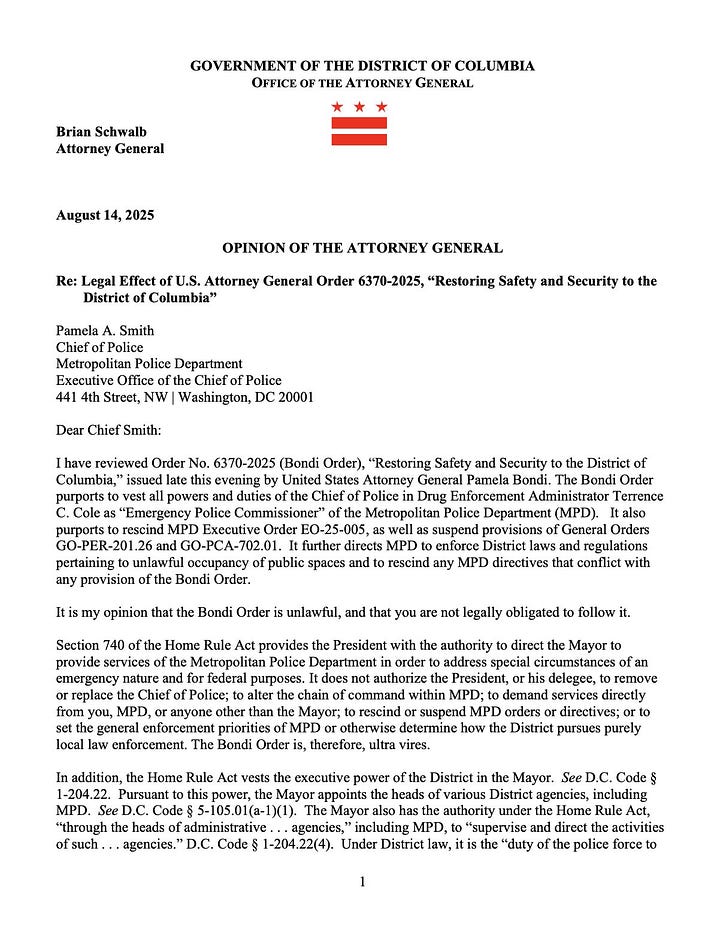
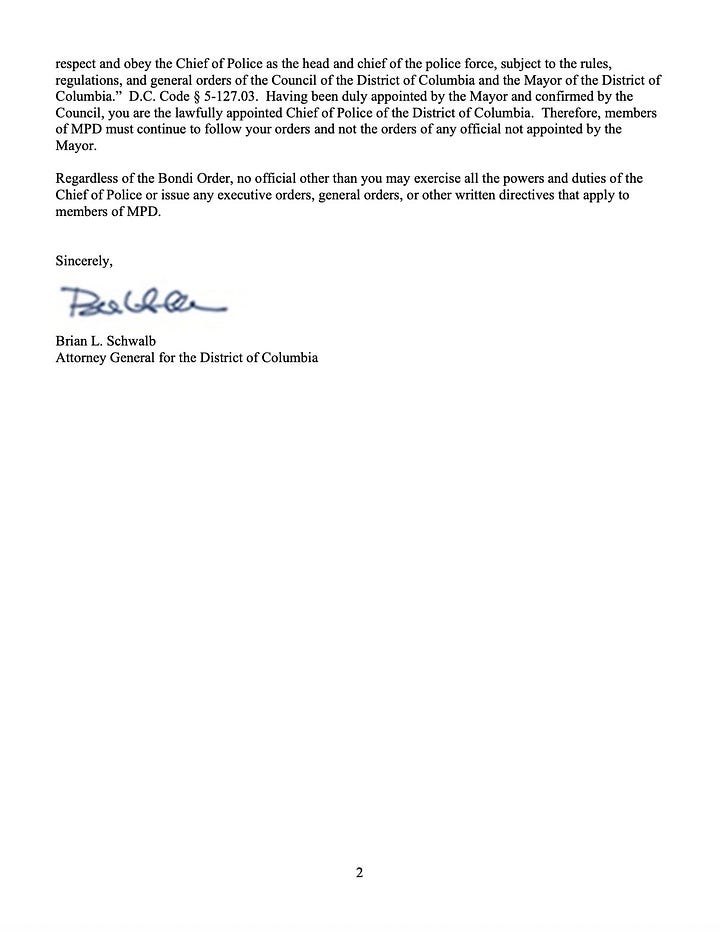
Sharing and backing Schwalb’s opinion, D.C. Mayor Muriel Bowser wrote in a social media post, “In reference to the U.S. Attorney General’s order, there is no statute that conveys the District’s personnel authority to a federal official.“
The moves escalate the crisis that has been building in D.C. since President Donald Trump invoked a portion of the Home Rule Act on August 11 that requires D.C.’s mayor to “provide … such services of the Metropolitan Police force as the President may deem necessary and appropriate” for up to 30 days — if Congress is notified of the move and the reason for it — and “for federal purposes.”
Bondi’s order, Schwalb’s opinion concluded, goes beyond the limits of that provision.
Smith, Schwalb wrote, is the only official who can “exercise all the powers and duties“ of the police chief or issue any of the various MPD orders (like those that Bondi purported to rescind or suspend).
Law Dork will have more on this developing story. Check back for the latest.



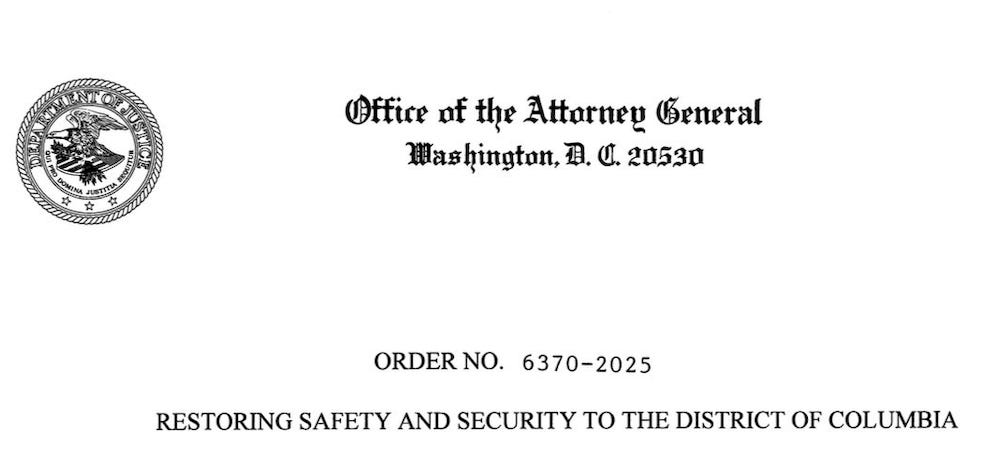
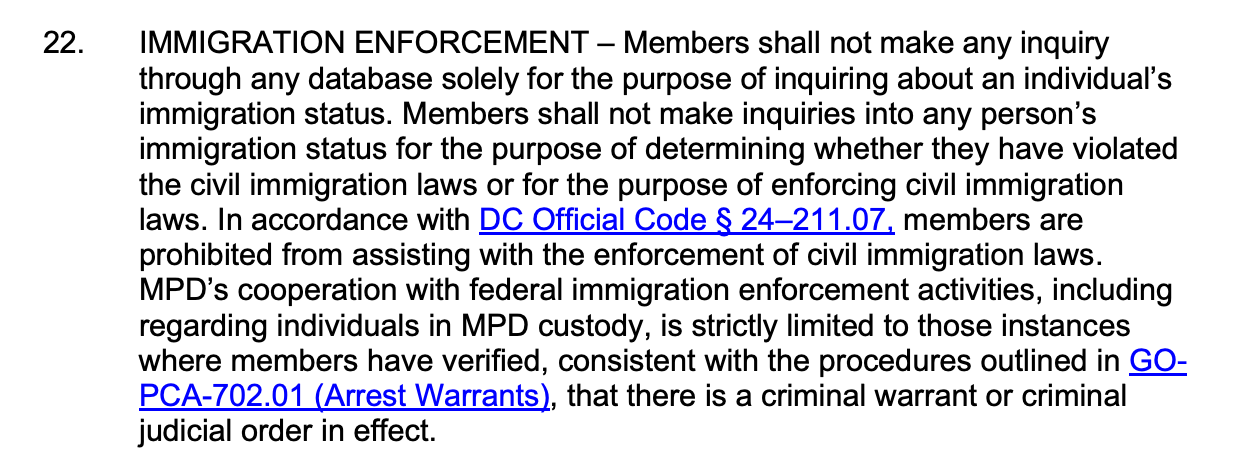



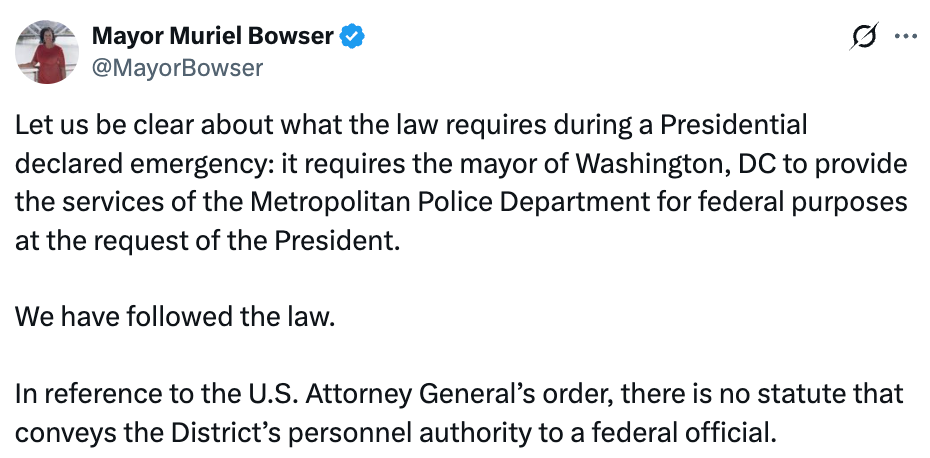
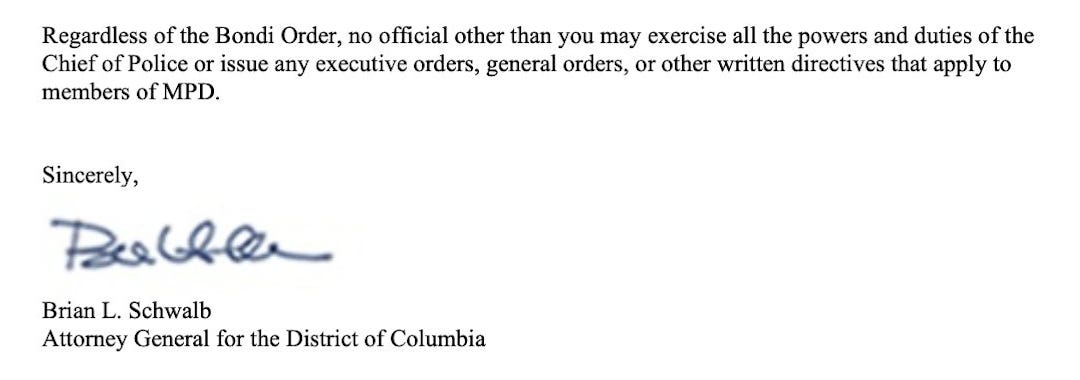
It’s not just that MPD Chief Smith is “not legally obligated to follow” Bondi’s directives, but that it is not permissible for AG Bondi to make such orders. The Home Rule Act clearly gives this authority to Congress.
Thank you for keeping us informed of D.C. protecting its citizens.